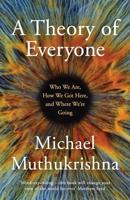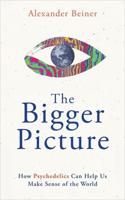Publisher's Synopsis
Since the mid-60s, Soviet authors have published a number of books - brochures and articles on the problems of the psychology of religion. However, these publications dealt, as a rule, with individual problems of the psychology of religion. Apart from the popular book by KK Platonov1, there have been no attempts to systematically describe the main problems of the psychology of religion from the standpoint of Marxist methodology so far. Meanwhile, the need for this is long overdue.This book is a monograph. At the same time, the author strove to make it as accessible as possible to the widest circle of readers.The author focuses on theoretical, methodological issues of the psychology of religion. At this stage in the development of this science, such an approach seems to be justified. First, since empirical studies of the problems of the psychology of religion in our country are just beginning, the solution of methodological issues will help determine the ways and directions for the further development of this science. Secondly, a clear and unambiguous solution of methodological problems is also necessary for the purpose of ideological demarcation from the non-Marxist psychology of religion, which is closely linked in the field of theory with philosophical idealism and theology. Disengagement from the methodological guidelines of the bourgeois psychology of religion does not mean that a Marxist researcher can generally neglect its content.For almost a century of its evolution (from the end of the 19th century), the non-Marxist psychology of religion posed a number of important problems (although, as a rule, it could not solve them from a scientific standpoint), accumulated a large empirical material, developed many methods and procedures for specific social psychological research of believers.Like the sociology of religion, the psychology of religion in bourgeois society has two main functions.One, which can be called ideological, is to theoretically substantiate the need for religion and its beneficialness both for an individual and for society as a whole from the standpoint of psychology. In this regard, the psychology of religion does not fundamentally differ from other sections of bourgeois religious studies, including the philosophy of religion. Another function, which can be called utilitarian, or practical, is to use empirical research to deliver information to religious organizations regarding the content of the religious beliefs of the population (finding out which religious myths and dogmas are accepted and which are rejected). Xia), the intensity and depth of religious faith among different social and demographic groups, the frequency of participation in worship and the degree of their influence on the psyche of people, the attitude of parishioners to religious values, as well as to the church and other religious institutions, and much more. Such information is used by religious organizations in order to increase the effectiveness of their ideological influence, in particular for the purpose of religious education of children and youth.If the methodology of the bourgeois psychology of religion is absolutely unacceptable for Marxists and requires detailed and well-reasoned criticism, then in the field of empirical studies of the psyche of modern believers, foreign psychologists have accumulated extensive factual material that can be used by Marxists. Nor should we ignore or underestimate the experience of Western psychologists and religious scholars in developing methods and procedures for empirical socio-psychological research.Proceeding from this, the author, relying on the experience of a critical analysis of the foreign psychology of religion2 already available in the Soviet scientific literature, criticizes its theoretical positions and attitudes, although she uses the factual data she has accumulated, as well as some particular conclusions and generalizations.









